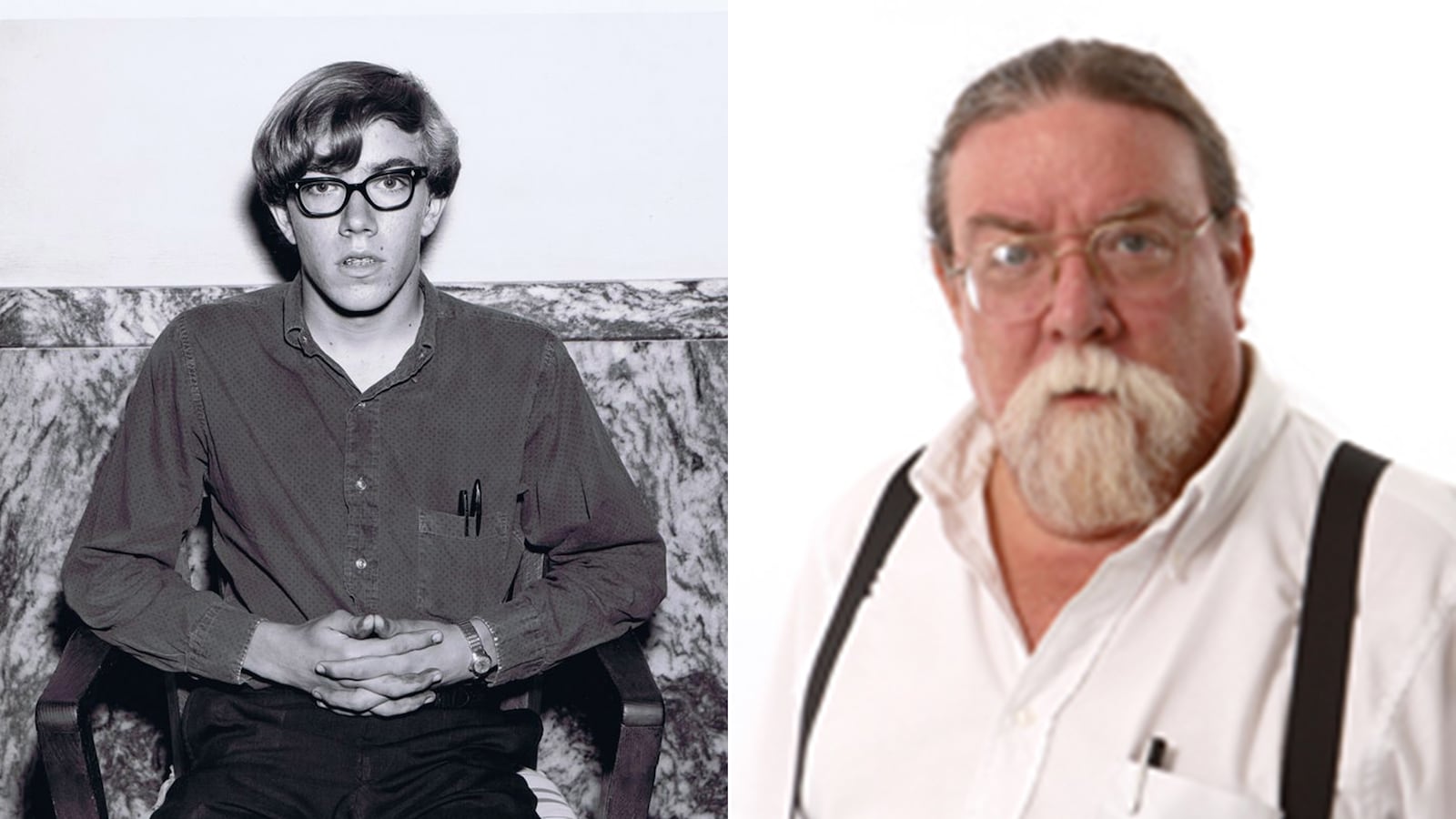In 1967, a 15-year-old boy killed his family in Georgetown, Texas. Then he grew up to be my psychology professor and I’m okay with that.

But not everyone is. Last week, for the first time, news reports connected Jim Wolcott the triple-murderer with Dr. James St. James, the Millikin University psychology professor. In his trial for the killings, Wolcott was declared not guilty by reason of insanity after being diagnosed with a mental illness. While detained in a mental institution, Wolcott earned his high school diploma and began taking college courses in psychology. Six years after he began treatment, he had a new trial and was declared mentally stable. Since then, he completed bachelor’s, master’s and doctoral degrees in psychology. In his position at Millikin, he has received awards for teaching excellence and has countless students who are proud to call him their mentor.
I took two of Dr. St. James’s courses as an undergraduate. He was an interesting teacher, he pushed students to think for themselves, especially in the honors class I took my senior year. He was smart, engaging, and compassionate when I needed to miss his class in order to come home for an emergency in my future husband’s family.
Now that a Texas newspaper revealed that Jim Wolcott changed his name to James St. James, those opposed to his position at the university have been very vocal. The mayor of Decatur, Illinois, the home of Millikin, has called for his dismissal. People around the country have said that he should not be trusted to be in a room with students because he killed in his past or because he could have a mental break like he did 46 years ago. The university has stood by him, saying that while they were unaware of his past, they know him to be a valued teacher whose students have sung his praises.
Since hearing the news, I’ve thought long and hard about how I feel about my professor’s past and how it should impact his present. Reading the story made me feel ill. My initial thoughts were “Someone I know killed his family. He’s now a teacher. That’s terrible.” But those knee-jerk reactions have given way to something more important: a strange kind of hope that the justice system we as a society profess to believe in really works. That a boy with a mental illness can receive treatment and find a way to not only live a good life, but one that has had profound positive effects on thousands of students.
Despite so many advancements in our society, there remains a huge stigma attached to mental illness. The Georgetown Advocate story made him sound sinister, and makes it sound as if having a mental illness helped him avoid justice and that he has never had to show remorse over his actions because of his past condition.
I have to disagree with that slant. Maybe because I sat and listened to Dr. St. James lecture and have had conversations with him during office hours or in the hall. After much soul searching, I can passionately say that I disagree that he should step down or be made to feel ashamed of the life he has built for himself since that terrible night over four decades ago.
Has he publicly stated that he is remorseful about his crimes? I have no idea, and I am not certain that it should make a difference. The words “I’m sorry” are easily said and just as easily forgotten. Living a life pursuing the field that would help him understand what caused him to pick up a weapon and kill his family, and dedicating his life to advancing that field so that others will not do what he did—that, to me, means so much more than any words. Every day that he spends helping educate and research that which caused him to take his family’s life is a way of remembering them and making sure that no one does what he once did.
No one can ever bring back lives that are taken, but there is great good in the determination to find mental health and to promote awareness—the very things that Dr. St. James has done since. For once, the justice system turned a man who was a threat to society into one who is making it a better place.
I’m not the only one who thinks so. Since the story broke, my fellow Millikin alums have been talking a great deal about this event on Facebook. Many said that they were shocked by the news, but of the dozens of posts I’ve seen on the revelations about Dr. St. James, only one person said they question his ability to continue with his job. The want Dr. St. James to remain in the classroom, and commend Millikin for standing by him.
Taylor Black, a recent graduate said, “Overcoming a serious mental illness with so much adversity while going on to earn a doctorate and become a fantastic professor is a miraculous feat. His determination to make each and every one of us successful in his classes makes him more than a good guy. He’s a great one.”
“I know him as a warm and thoughtful person who was a friend as well as a fantastic teacher,” said Millikin alum and Hollywood actress Heather Burress. “Came to all my gigs. Even cooked meals for me when I was broke one summer and really needed a decent meal. That’s my experience of the man. And it’s really all I think I can use to judge him.”
And perhaps the most powerful phrase is the one that I have seen over and over again: “I believe in redemption.” It is a phrase I would like to believe we all stand by.
Dr. St. James has not willingly spoken to the media about his past, and I can’t blame him. But days before I wrote this piece, I sent a message to him offering him my support of the new life he has created. I didn’t expect a reply considering the amount of mail this news storm must have created. But whatever you may believe of Dr. St. James and his past, in his present, he is a teacher first and foremost. Despite the current news cycle, he remains responsive and available to students both past and present. He answered my e-mail with the same intelligence and willingness for discourse that I remember from his classroom years ago. As one who has had the privilege of teaching both high school and college students, I find great good in his commitment to his students as well as his dedication to the profession he has spent his adult life serving.
Does that negate the horror of what happened in 1967? No. Nothing can. But knowing that he has devoted his life to a purpose that might save other families the same terrible fate he visited upon his own? To me that is far more justice than most victims ever receive.
So maybe I’m naïve. Perhaps it is my fervent wish that people can be redeemed that makes me write these words. But I stand by Dr. James St. James and I am hopeful that since he demonstrated that there is a way out of the darkness that others can find it, too.






